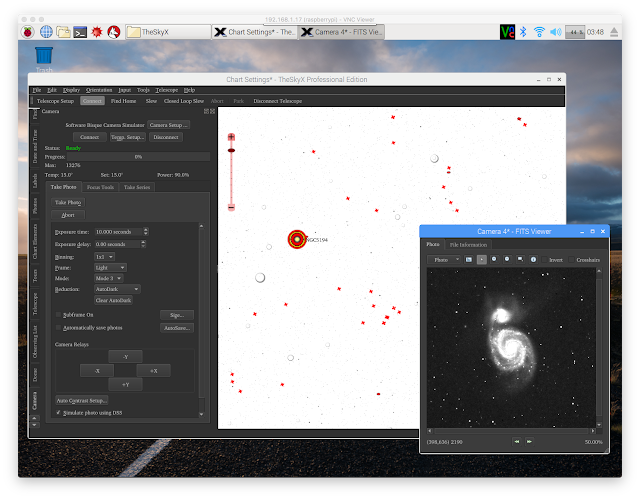What is Raspberry Pi? Simply it is a computer about as powerful as the average smartphone with about the same form factor (a bit bigger due to the additional ports) and power requirements. With the addition of four USB ports (which will connect to our mount, camera, etc), and an ethernet port (plus wifi and HDMI output), it has all the capabilities we need.
 |
| A Raspberry Pi - Ain't it cute? |
Running the Raspbian OS (a variant of Debian Linux), Software Bisque (as of December 2016) now has a supported version of TheSkyX built for this platform. Below is an image of TheSkyX running on our Raspberry Pi:
 |
| TheSky on Pi. |
- Minimal power requirements (a cell phone charger will power the Pi)
- Minimal cost (<$100 worst case for a RaspberryPi with case and microSD card)
- Low cost means we can easily afford to have a spare Pi on site ready to go as a backup in case the main one fails
- Better reliability (in theory) since there are fewer physical components to fail
Of course, we will have a full-sized computer (donated!) on hand in case we need it...but with our Pi, I have a feeling we won't be needing it too much :).


No comments:
Post a Comment